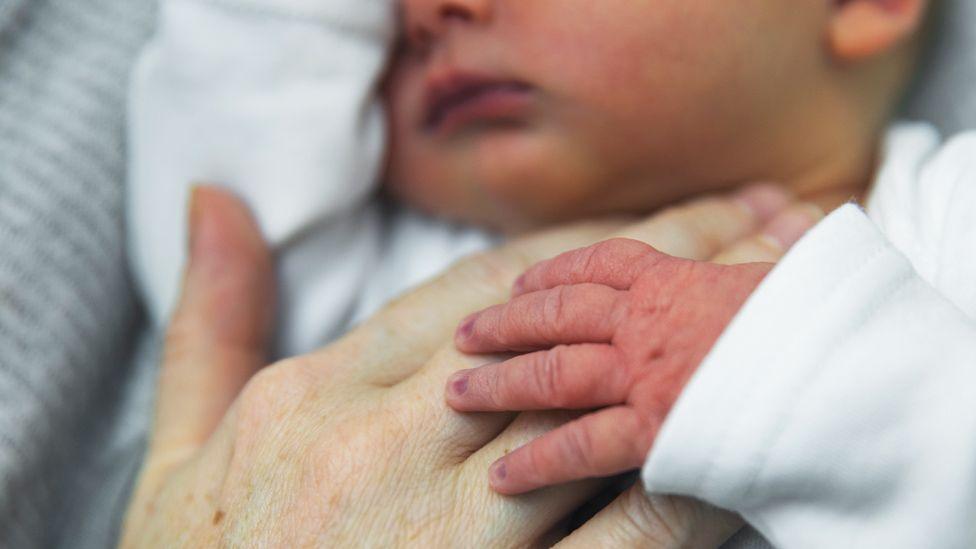Medics warn of dangers of freebirths
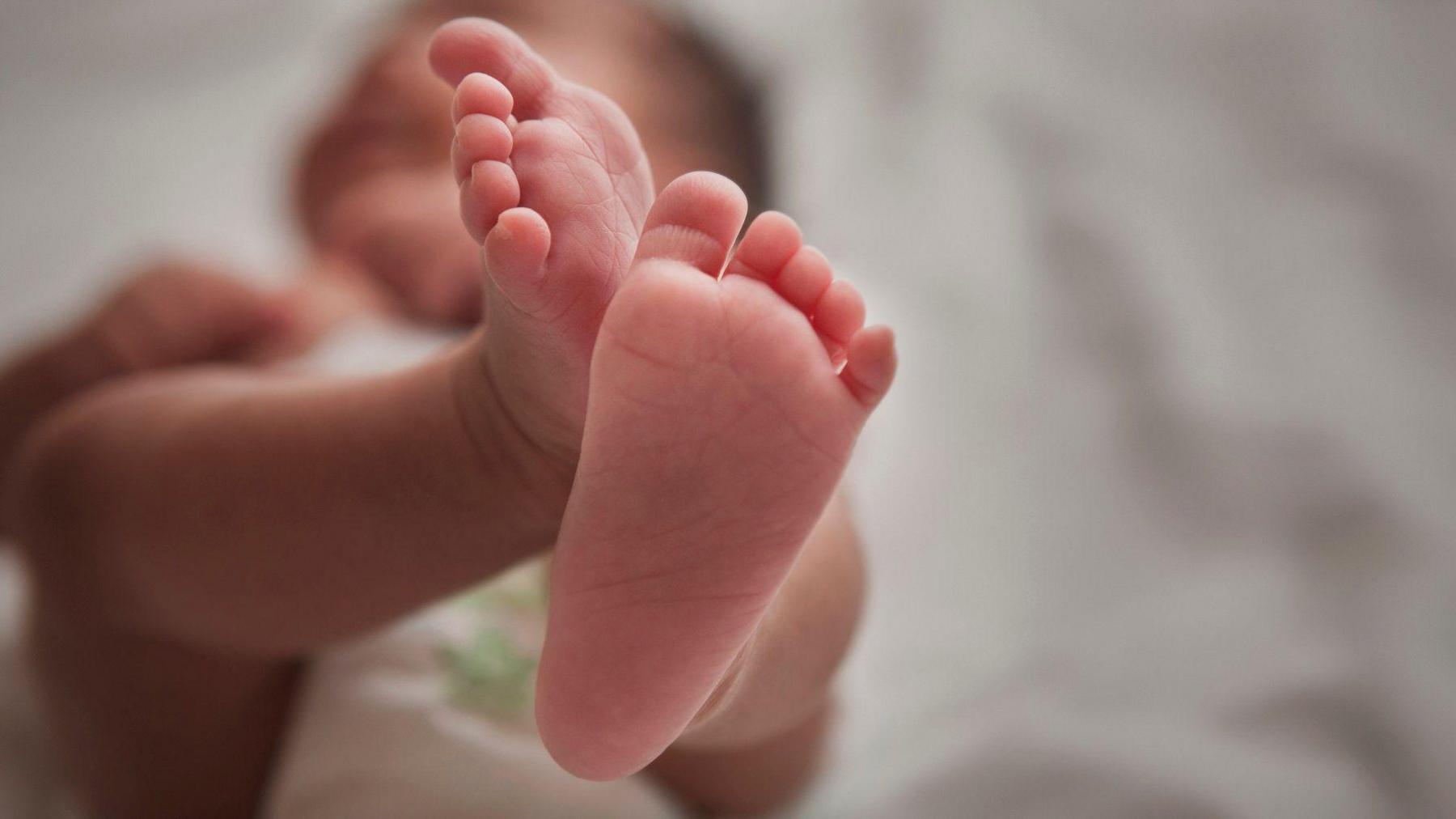
A senior obstetrician says she is "terrified" about women giving birth in a medically unsupervised environment
- Published
A concerning trend of women giving birth without qualified medics risks "reversing [care] to the middle ages," experts have said.
Figures show a rise in the number of women using doulas - a person who provides support to a pregnant woman before, during and after childbirth, and usually involves a home birth.
In some cases, doulas were persuading women to ignore medical advice, medically experts have said.
A senior consultant said mums-to-be were risking their child's life with medically unsupervised births, and their own health. She knew of a patient left with a colostomy bag after a doula advised them not to be stitched up following a fourth degree tear.
She is now calling on the government to introduce regulation for doulas.
Director of Doula UK Trudi Dawson told the BBC that they do not perform medical tasks and are only there for "advocacy and support".
'Still their choice'
"It's really more about comfort measures, advocacy, support, hand-holding, encouraging," she said.
She insisted members are not allowed to steer women towards making particular birth choices, adding: "We would signpost them to the evidence.
"So research might say, for example, if you have a twin, a home birth, you may be more likely to experience X, Y and Z, and that would still be their choice.
"It might also be that with a twin birth, if you're going to hospital, you may be more likely to receive interventions that you don't want.
"So it would be evidence based, but it would be the whole picture from both sides should they want it as well."
Mrs Dawson does not agree with calls from obstetricians for doulas to be regulated.
She added: "Obviously we can’t be the doula police but we are trying to make sure that there is kind of a gold standard by having a register of doulas who have done specific training, who've had a mentored period, and who stand by the philosophy and a code of conduct."
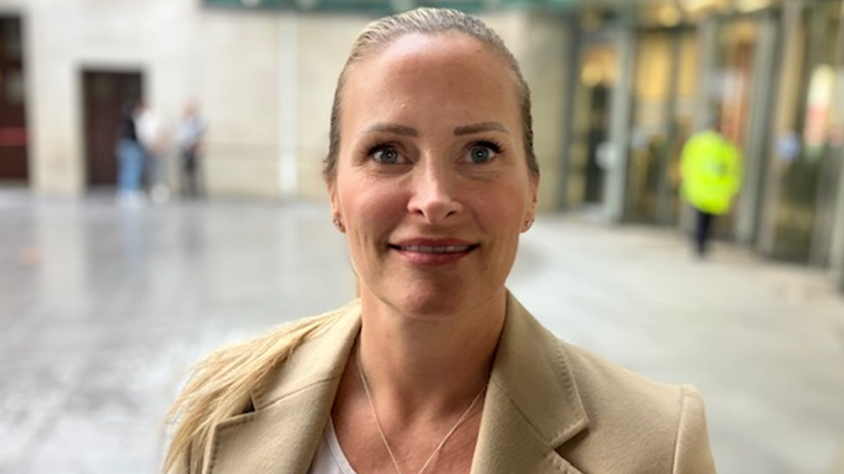
Doula UK director Trudi Dawson
But a senior obstetrician and gynaecologist, who didn't want to be named, said she was "terrified" about women giving birth in medically unsupervised environments.
She said: "I just feel like freebirthing and allowing women to take that sort of risk with themselves, their bodies and their baby, is risking their baby dying and them potentially dying in that very unsupervised environment.
"I think it's reversing back to the Middle Ages."
There are 700 doulas registered with Doula UK who assisted in more than 2,000 births in 2022, up from 1,835 the previous year and numbers are expected to continue to rise.
Doulas often act as intermediaries before and during childbirth. They are not government regulated, but to register with Doula UK, they must have completed an approved course and spent time with a mentor.
However, you do not have to be a member of Doula UK to work as one.
It is illegal for doulas to provide any form of medical intervention, such as practising birthing techniques that should only be carried out by midwives and obstetricians.
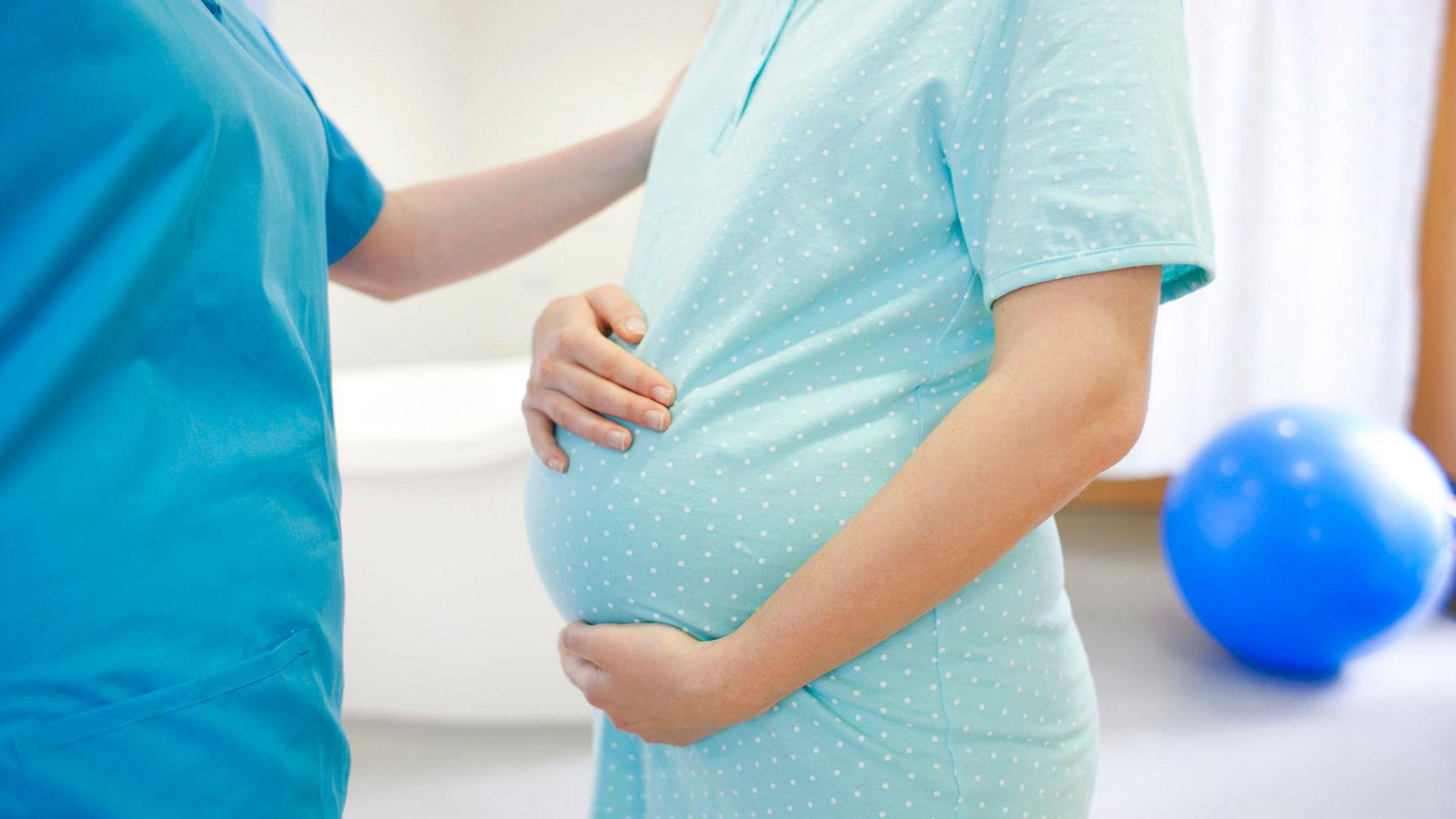
Obstetricians and midwives have warned against seeking the advice of people who are not qualified medics
The senior obstetrician and gynaecologist added: "I have had to care for women who had to come into hospital as an emergency after home, unsupervised home birth, either with a severe tear or sometimes haemorrhaging.
"I have seen with a colleague, for example, that a woman was persuaded [by her doula] not to have a fourth degree repair in hospital.
"And this woman ended up with a colostomy. So there's some limited evidence that doulas are working outside the bounds of what they should be doing."
The government said it was training thousands more midwives and was "determined to learn lessons from recent investigations into maternity care to make sure that all women and their babies receive safe, personalised and compassionate care".
But the Royal College of Midwives (RCM) claims there is a shortage of 2,000 midwives in England and that is causing a "real problem when it comes to choosing to give birth at home".
'Patchiness of knowledge'
Two senior midwives from different trusts in England have heard of instances where midwives have been kept out of home births by doulas, leaving them waiting in their cars.
One of them said: "It's just the unregulated nature of them and the patchiness of the knowledge.
"In shared conversations with doulas, I heard birth reflections about shoulder dystocia [when the baby's shoulders are stuck] and criticising midwives for intervening.
"I have heard recently of a midwife arriving and finding equipment for Entonox [pain-relieving gas] and for an episiotomy for a doula. This is where you really are crossing boundaries.
"We’ve had cases where the midwife has been asked to sleep in the car for 12 hours just in case.
"We feel very, very compromised on that, if you look at the NMC [Nursing and Midwifery Council's] code of conduct with the expectation on us to attend if called."
Another senior midwife said: "In the last two years, more doulas I have never heard of are appearing on the scene that don’t approach me or midwives caring for the woman. I don’t really know what they are advising women on."
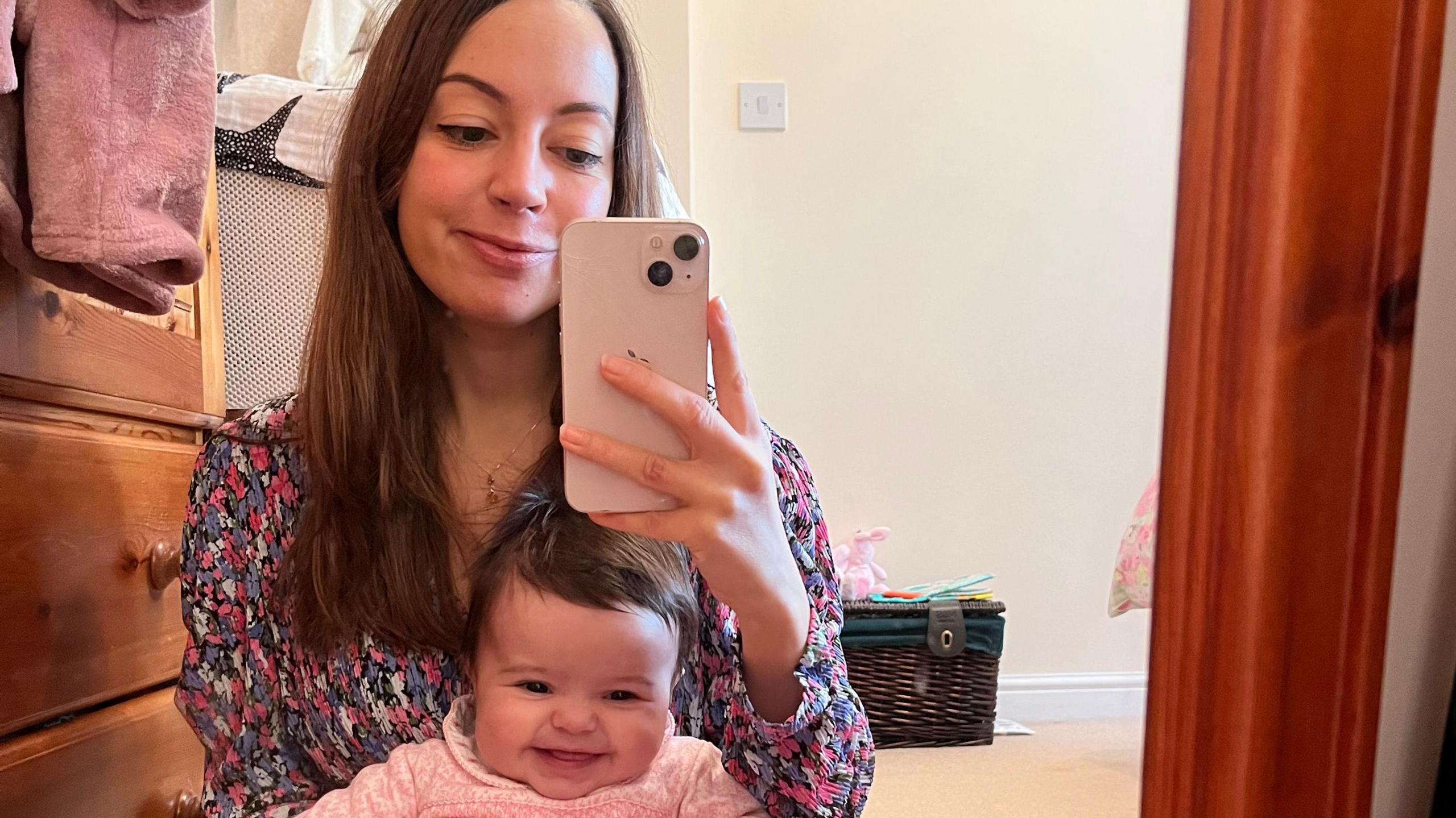
Rebecca said her doula "knew all those things to ask for"
However, lots of women reported really positive experiences with doulas.
Rebecca gave birth two years ago to her daughter Luna after having a caesarean at 41 weeks.
She said having a doula present had been a great help, adding: "She was just amazing. She helped me with breastfeeding in the hospital.
"She knew all those things to ask for, which I would have probably quietly and passively sort of sat in a corner suffering and not bothered to kind of stand up and ask for help."
Mimi, from Bristol, did manage to have a home water birth with two midwives present when she gave birth to Nala.
She said: "I didn't want to feel like a patient when I'm doing something that should feel really empowering.
"I just feel really lucky that I didn't have to have a baby in hospital because I think for me personally it would have been a very different experience."
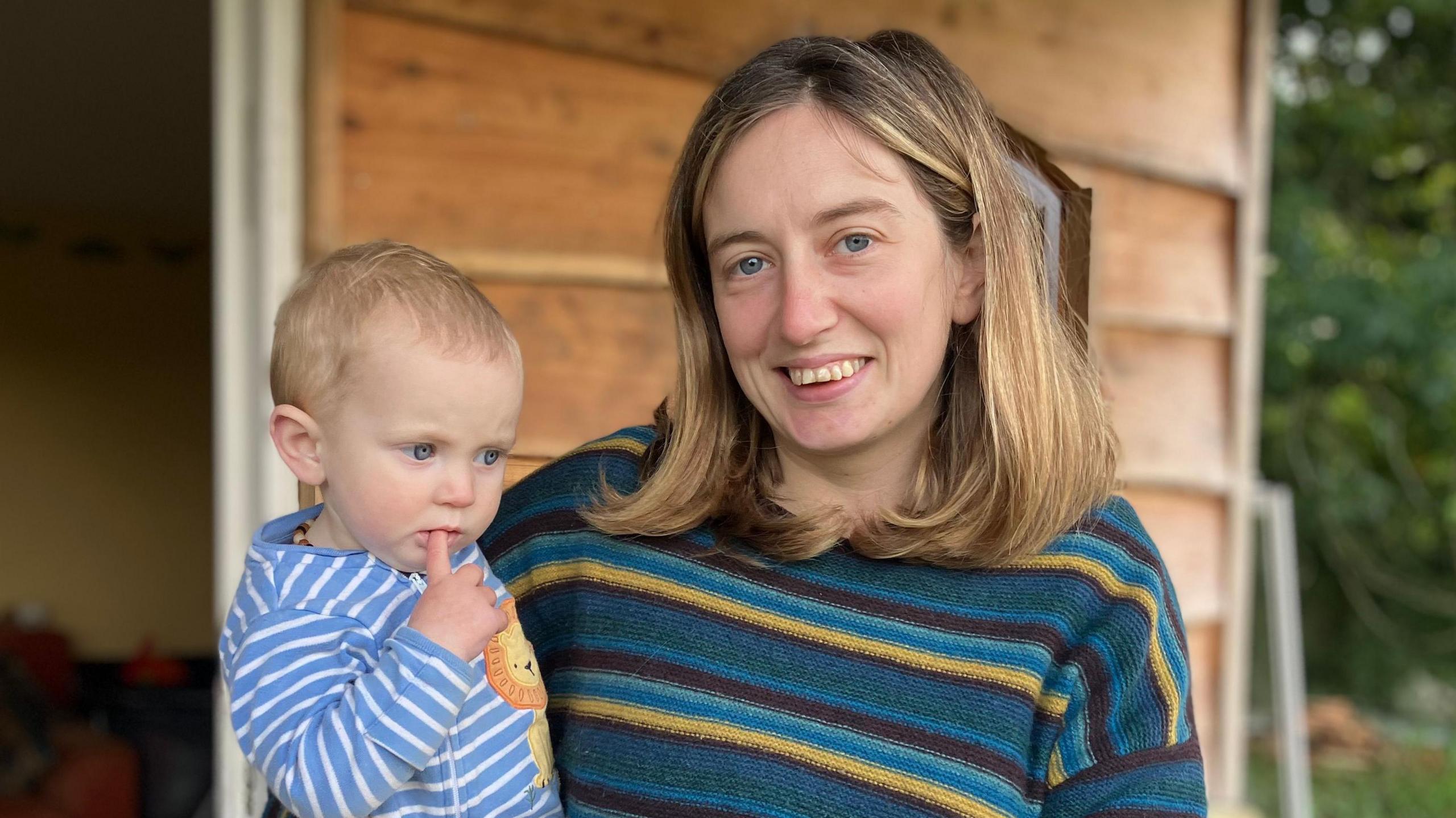
Mimi said she felt very lucky to have a home birth
Meanwhile, Isida Mitre, from London, hired a doula after her first son was born - but they ended up being away on holiday when she went into labour and the couple had to find a replacement.
"Baby was born. I contacted her and she came straight away, so she worked for us like two days, but it was staying like three or four hours," she said.
"The day after, I was waiting for her to come. And then she texts me saying that she's not able to come."
Isida said she had felt let down and would like to see wider regulation of doulas.
There were 598,400 live births in England and Wales in 2023.
According to a report last year by Maternity and Newborn Safety investigations that looked into 3,000 deaths of babies or mothers in childbirth, doulas were involved in 29 incidents, less than one per cent.
And of those cases, less than half involved doulas doing tasks that only midwives or doctors should do.
Fiona Gibb from the RCM said she had heard from some members that midwives have been kept in a separate room by doulas, unable to monitor or assess the birthing mother.
She said without regular access, they could not assess if paramedic staff were needed for transfers.
"It's one of the reasons why the RCM wouldn't recommend freebirth just because of the associated risks that can be involved with it," she added.
'Somebody to support women'
In the last decade, caesareans have increased to almost 40% of all births and inductions have gone up by 10%, with one in three labours being brought on artificially.
Nadia Higson from the Association for Improvements in Maternity Services (AIMS) said a series of maternity scandals had created a fear that women were not being listened to by medical professionals.
"Many people will turn to doulas because they just feel they're going to at least have somebody there who is supporting them, advocating for them, and that that may be a helpful thing for them," she said.
The Royal College of Obstetricians and Gynaecologists told the BBC: "Women should have the right to give birth in an environment in which they feel comfortable, and should be supported in their birth choice.
"However, safety is paramount and women should be given all the information they need to make an informed decision."
Get in touch
Tell us which stories we should cover in Somerset
Follow BBC Somerset on Facebook, external and X, external. Send your story ideas to us on email or via WhatsApp on 0800 313 4630.
- Published23 January 2022
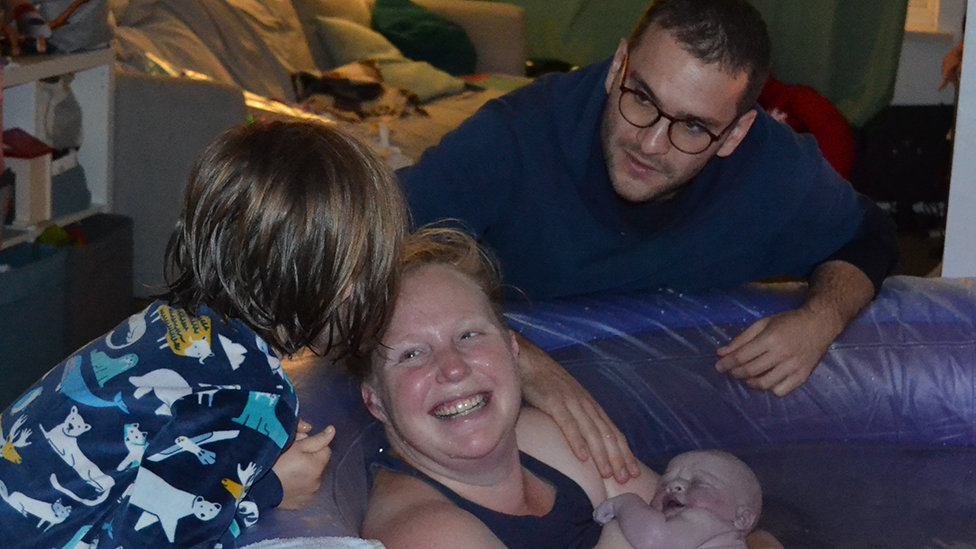
- Published8 February 2024
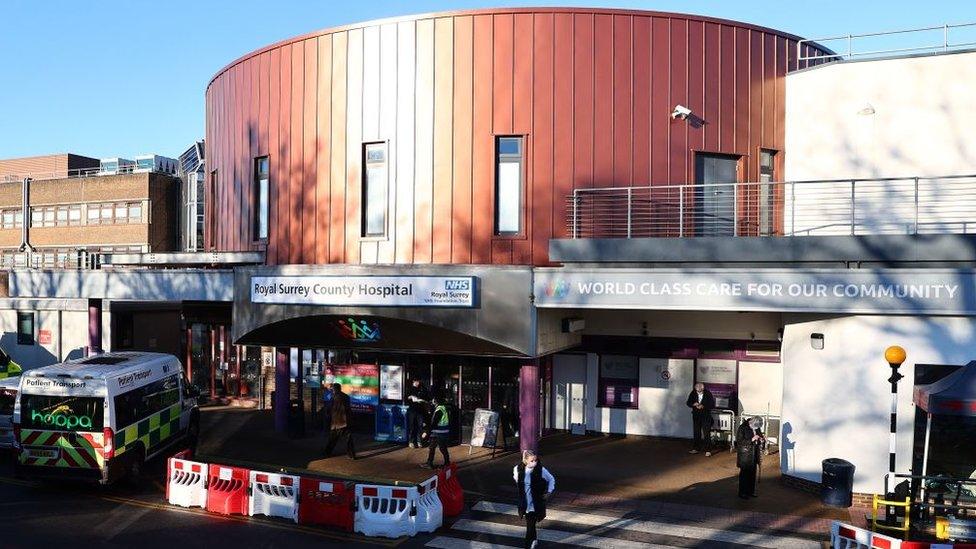
- Published19 September 2024
